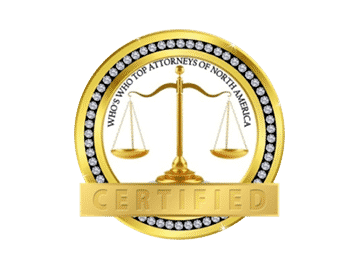Does my herniated disc qualify me for Social Security disability benefits?
Back pain plagues millions of Americans and is a common complaint brought to doctors across the country. Back pain can have several causes, ranging from relatively minor pulled muscles to serious injury. If your back pain is caused by a herniated disc, you may have permanent pain that causes a lasting disability and prevents you from working. If you are unable to work, you may be entitled to Social Security disability benefits.
What is a herniated disc?
The bones in your spinal column, or vertebrae, are supported and cushioned by small sacs filled with a gel-like fluid. These sacs, or discs, allow the spine to bend and flex, and they cushion the bones of the spine from the everyday blows caused by walking or jumping.
A herniated disc occurs when the membrane surrounding the gel-like fluid breaks open or becomes weak, allowing the fluid to bulge. The bulging disc then may press on the nerves in the spinal cord, causing pain. If the disc does not press on the nerves, then you may not be aware that a disc has become herniated unless you have an MRI or CT scan.
What causes a herniated disc?
Many herniated discs are related to the wear and tear of the aging process. As we age, the discs in our back become less flexible and more brittle, which can lead to an eventual rupture.
Other herniated discs can be caused by injury. If a person’s back is injured, the discs may tear or rupture. Even minor, unnoticeable tears eventually may lead to herniated discs.
Can a herniated disc be treated?
You first may be advised to rest and avoid any strenuous activities in the days or weeks following your injury. Treatment for a herniated disc includes exercises to strengthen the core and back muscles and medicine to help relieve pain. If conservative treatment is unsuccessful, a doctor may recommend surgery that removes the damaged disc and fuses the vertebrae together. It’s important to follow your doctor’s and physical therapist’s instructions.
What if I can’t work?
If you have suffered a herniated disc and no longer can work, you may be eligible for Social Security Disability Insurance (SSDI) benefits or Supplemental Security Income (SSI). Your eligibility for either program is determined by your work history as well as your income and assets. SSDI is dependent on having enough work credits, whereas SSI is dependent on your income and resources (it is intended for low-income individuals).
You also must meet the disability requirements. Herniated discs may fall under “Disorders of the Spine” located in Section 1.04 of the Adult Listing of Impairments. The condition must compromise the spinal cord with:
- evidence of nerve root compression – limitation of motion of spine and motor loss with sensory and reflex impairment; or
- spinal arachnoiditis – severe burning or painful, abnormal sensation that requires changing position every couple hours; or
- lumbar spinal stenosis resulting in pain, weakness and problems walking.
At Rob Levine & Associates, our attorneys help people with disabilities like herniated discs and related conditions apply for and receive Social Security disability benefits. If you are unsure if you qualify for benefits, need help applying for benefits or need help appealing a denied claim, call 1-866-LAW-SSDI to set up a free initial consultation and speak with one of our attorneys about your injury.








